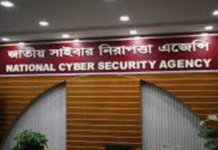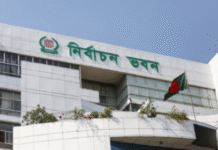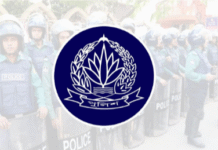BRI a major game changer for Bangladesh

Nadira Karim has no memory of her mother who died when she was just one-year-old. Brought up by her paternal grandmother, Nadira later learned that her mother died for want of treatment. Her unemployed father couldn’t afford treatment for his ailing bed-ridden wife. That’s why Nadira dreamt of becoming a doctor to help the poor so that no one suffers the same fate of her mother.
But Nadira found it hard to fulfill her dream as her unemployed father found it difficult to make both ends meet, let alone educate her. But the determined girl continued her study and completed school despite acute financial crisis. In order to bear her education cost, the girl sometimes offered private tuitions and embroidered clothes for local boutiques.
But after graduating from school, fate played a cruel trick with her when she was unable private classes to prepare for medical exam due to her financial situation She sank into depression when she saw her friends take coaching for the test.
Then the Belt and Road Initiative (BRI) came to her rescue. Her unemployed father found a job with Karnaphuli Multi-Channel Tunnel Project, a BRI project in Chittagong, the commercial capital of Bangladesh. As a result, her father became financially secure and Nadira enrolled in the Chittagong Medical College where she is now a second-year student on the way to becoming a doctor.
The BRI has come as blessings not only for Nadira and her family but also for millions of people of Bangladesh. The BRI has raised their hopes and they now dream of becoming self-reliant. Nadira’s story is just one example of how the initiative is changing the lives of ordinary people of Bangladesh.
In addition, the BRI has emerged as a major game changer for the South Asian nation by profoundly contributing to its economy since the country formally joined the initiative during the President Xi Jinping’s Bangladesh visit in 2016 when the two nations signed several agreements worth $21.5 billion.
Several projects have already been implemented and people of Bangladesh are reaping dividends of those BRI projects. The Bangladesh Power System Upgrade and Expansion Project, a $165 million power project, is a vivid example how the BRI is playing a role in improving livelihood of people of the country. This project has benefited more than seven million Bangladeshis by helping provide electricity connections to over 2.5 million rural people.
Besides, China is now implementing $10 billion worth of infrastructure projects in Bangladesh including the Chinese Economic and Industrial Zone, Payra Power Plant, the eighth China Bangladesh Friendship Bridge, and the International Exhibition Center. Every project has created a huge number of jobs, bringing about enormous socio-economic development of Bangladesh.
The huge amount of investment in the important elements of infrastructure sector like power, roads and highways, railways and airports under the BRI cooperation has contributed to raising and maintaining the growth rate of Gross Domestic Product (GDP) of Bangladesh to seven per cent for last half a decade. As a result, Bangladesh is now on the way to become a middle income country.
The BRI has also brought good news to Bangladeshi students who aspire to receive quality education in China. Under the initiative, China has increased its scholarship number to 8,000 for Bangladesh. This great opportunity has been contributing to increasing remittance inflows to Bangladesh, which is the country’s second-largest source of foreign currency earnings, by producing skilled human resources.
For the coming days, the BRI is also considered an effective tool for Bangladesh to achieve its goal to be a developed country by 2041 to mark its 70th independence anniversary. In order to reach its goal, the South Asian country has to raise and maintain its GDP growth to more than 8 per cent in the coming years which is possible only by achieving remarkable progress in its infrastructure, exports, remittance and some other major sectors. The BRI can help Bangladesh in infrastructure development, diversifying export goods and markets and producing skilled human resources to explore new remittance markets around the partner countries of the initiative.
Finally, the BRI has eventually come out as a major game changer for Bangladesh as the initiative has successfully been playing vital roles in developing living standard and quality of life of its people by contributing to its overall advancement. Most of Bangladeshis do believe that the BRI has brought great opportunities to their country to become a developed nation.
The writer is the diplomatic correspondent of the Daily Sun, a leading broadsheet national English daily of Bangladesh. He is currently receiving training in journalism in Beijing as a fellow of the China International Press Communication Center (CIPCC) Programme 2019.
The opinions expressed here are those of the writer and do not necessarily represent the views of China Daily and China Daily website.









